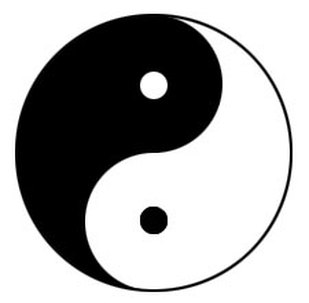LIVING THE "TAO OF COMPLEXITY"
We want to distil the universal relevance of East Asian spiritual traditions and integrate them with findings in systems biology, complexity science and neuroscience.
harmonization with the cosmos

In contrast to the conventional Western belief that spiritual meaning is to be found through transcendence, some East Asian spiritual traditions have focused their attention on embodied experience.
Traditional Taoist philosophy sought to achieve harmonization with the cosmos. Certain branches of Buddhism developed an understanding of the interdependent nature of reality and the self.
The less well known school of Neo-Confucian philosophy synthesized these two traditions to construct a cosmology comprising qi – energy and matter – and li – the underlying principles of organization through which energy and matter is manifested in the universe.
Traditional Taoist philosophy sought to achieve harmonization with the cosmos. Certain branches of Buddhism developed an understanding of the interdependent nature of reality and the self.
The less well known school of Neo-Confucian philosophy synthesized these two traditions to construct a cosmology comprising qi – energy and matter – and li – the underlying principles of organization through which energy and matter is manifested in the universe.
principles of self-organization

The Neo-Confucian concept of li closely parallels the principles of self-organization that have been identified by leading theorists in systems biology and complexity science. This striking congruence between traditional Chinese thought and modern science offers a kind of spiritual Rosetta Stone, through which spiritual wisdom and a scientific understanding of life may be seen as commensurable and translatable. This is where we get the name “Liology,” a word that fuses Western and Eastern traditions, and which refers to an embodied study of the organizing principles that link all living entities.
One of the aims of the Liology Institute is to distil the universal significance of these East Asian wisdom traditions and demonstrate their compatibility with the worldview offered by modern complexity science and systems biology. By doing so, we hope to illuminate the profound spiritual implications of modern systems thinking and revitalize ancient teachings in a form that makes them pertinent to current and future generations.
One of the aims of the Liology Institute is to distil the universal significance of these East Asian wisdom traditions and demonstrate their compatibility with the worldview offered by modern complexity science and systems biology. By doing so, we hope to illuminate the profound spiritual implications of modern systems thinking and revitalize ancient teachings in a form that makes them pertinent to current and future generations.